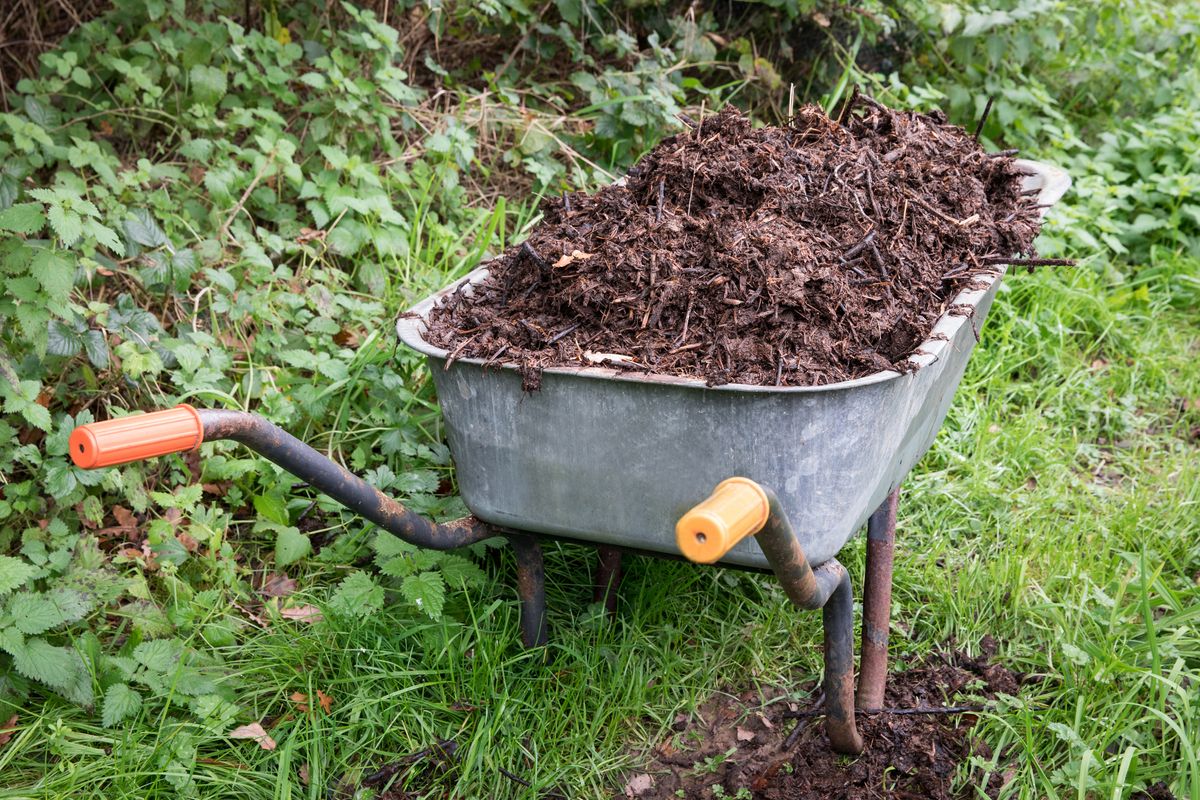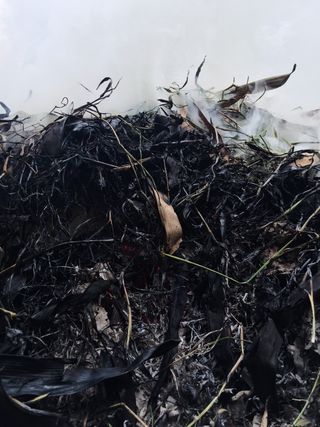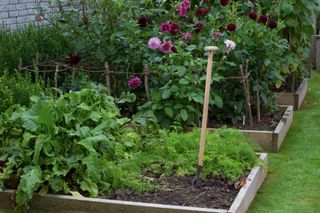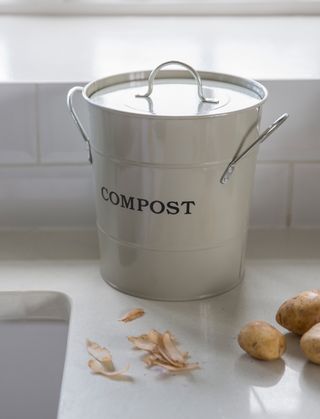How to make compost: 7 steps to make your own at home
How to make compost tea fertilizer, how to make compost bin, how to make pancakes, how to make compost bin, how to make money online, how to make buttermilk, how to make compost manure, how to screenshot on pc, how to make compost tea, how to make compost, how to make compost at home, how to make compost conan exiles.

Knowing how to make compost is a must for every keen gardener. Not only is it a brilliant fertilizer, helping to keep your plot's soil heathy and full of nutrients for a fully thriving kitchen garden but, compost can also be used as mulch to defending your favorite garden plants and finally, it is an efficient way of reducing the amount of extinguish that usually goes into the trash can... What can't compost do?
Composting is easy and fun and can be done in even a petite outdoor space, so long as you're rigorous about what you put in your compost.
We revealed with Michael Perry, Rowse's Gardening Expert, also known as Mr Plant Geek throughout making your own compost who says, 'It's worthwhile putting do an area of your garden for composting, you can either buy a specialist preserve or construct your own. Add all manner of things to your compost heap, and the result will be full of nutrients! These things much include lawn clippings, old egg boxes, shredded newspaper, hedge trimmings and of flows vegetable scraps from the kitchen! The compost takes near a year to form and makes the perfect top mulch for your touch plants or mixing into pots of patio plants.'
How does a compost work?
Composting is a glowing cool process by which microorganisms (aerobes) eat the organic concern (carbon rich) you put in and break it down to lop you with a nitrogen, phosphorus and magnesium-rich compost full of top-notch nutrients to help plants thrive.
In Layman's terms: Waste concern goes in, nutrient-rich matter comes out. Simple.
How do you make your own compost?

(Image credit: Fahmi Ariza on Unsplash)
1. Start on bare earth
You want to make sure you inaugurate your compost heap on bare earth, clear of any debris or weeds. If you are using a compost bin, position it on unruffled earth again, free from weeds.
2. Add a base layer
Make sure you layer your compost heap or bin correctly. Line the bottom with straw, twigs, or even old newspaper.
3. Alternate wet and dry composting ingredients
You then want to alternate green and brown (or wet and dry) composting materials, these are the best ingredients for compost:
Brown waste/dry compost ingredients
This is the dry slay that is going to help aerate your compost, and stay it from getting too wet and rotting as opposed to composting. Leaves, twigs, and wood ash or pellets count as dry. You can also use cardboard, just ensure it is free from ink (unless biodegradable) and any plastic tape/labels.
Note that if you have too much brown slay in your compost, you won't get the rich, soil-like compost texture in the end.
Green waste/wet compost ingredients
Between a quarter and half of your compost should consist of green slay. Primarily: Vegetable and fruit peelings and flesh – banana skins are fine in case you're wondering! Just censured you remove any sticky labels. Tea bags (unbleached is best), coffee grounds and other plant-based food scraps like pasta and bread are all fine. There is a little controversy about egg shells but they are good to include as they are a source of calcium.
To help move your compost put down, speed up the decomposing time of your ingredients by chopping or crushing them up into itsy-bitsy pieces. This will make it easier to breakdown.
4. Feed it
Feeding your compost will make it more nutrient-rich, helping it to mature quicker. Do this by adding a nitrogen-rich feed or well rotted manure. Green manure like clover, buckwheat or even grass clippings with help keep the nitrogen ended up.
5. Keep it moist
You should 'water' you compost – rain soak is fine if from a clean water butt, or you can one hose it. It doesn't need to be soaking wet but moist.
6. Keep your compost heap or bin covered
Always keep your compost heap covered with a plastic sheet or grass clippings which will also help fend off flying insects also. Just keep a pile next to your compost. And, if using a compost bin, cover it with the lid provided.
7. Turn it
Aerobic respiration is the process of breaking down the slay matter which is why it's a good idea to air your compost. Turn it for best results, turn your compost regularly, about every week. This introduces the air needed to lickety-split up the composting process.
Safety notice: Compost heaps will overtime perform up mold spores. These are unlikely to harm you if inhaled except, some are more sensitive than others so always wear a mask and protective eye wear when turning your compost vigorously.

(Image credit: Leigh Clapp)
What must you not compost?
- Meat: Will attract pests and aid disease.
- Fish: Will attract pests, leave a bad odor and aid disease.
- Dairy waste: Will attract pests, leave a bad odor and aid disease.
- Rice: Can lead to a buildup of potentially corrupt bacteria.
- Weeds: Especially not the seed or any live roots as these may root in your compost.
- Diseased plants: As these could spread and infect the entire pile.
What will make compost break down faster?
So long as you have good layers of Destroy, your compost will breakdown quickly. You can add so named natural 'activators' too like comfrey leaves and grass clippings or even a shovel of rotted compost from someone else's pile too to kick-start the procedure furthermore.
Compost accelerators can be used in winter when carbon Destroy tends to be lower as they are rich in nitrogen.
If you want to Begin the process off quicker anyhow, you could invest in a shining composter like a Lomi. They work by turning almost all food Destroy into soil and more readily compostable material in as small as four hours.
This is a big investment at nearly $500 but it can definitely be wonderful it to keep a kitchen free from smells that are Popular with small conventional compost boxes, or by putting remains in your regular trash can. The Lomi produces soil that can be used straight on plants and some settings will give results that quiet want a little time to break down furthermore. The Lomi uses activated charcoal as the accelerator and the results are beyond shining, and it can change your kitchen game for the better.
" data-widget-type="deal" data-render-type="editorial">Where must compost be, in the sun or shade?
Temperature is key, and a steamy compost is a good one so locate your bin or heap in a sunny spot if possible to move the procedure along. We would still recommend you keep it away from seating and outdoor living spaces but as it's not everyone's idea of a good time!
How often must compost be turned?
Turning compost is important because it adds air to the mixture, which is essential for the chemical processes that make the compost. Not enough air can result in a compost that is compacted, slimy, and/or rotting. This is often the case in small-scale home composting, when you're adding a bit of waste infrequently. For best results, turn your compost as often as you can with a pitchfork – or, if you're composting in the kitchen, with whatever kitchen utensil with a long handle you can find. For larger compost bins, you can also use a compost aerator, which pumps air into your compost.
If you really don't want to turn your compost, we can understand, you just need to make sure that you layer your compost with huge brown waste between green waste. This should prevent your compost from moving too soggy.
How long does it take to make compost?
Depending on the intends temperature, and materials you're using, and how well the compost is aerated, it can take anywhere between several months and over a year for compost to musty enough to be ready to be used in your garden.

Compost Bucket in Clay , Garden Trading
(Image credit: Garden Trading)
How do you know if your compost is working?
There are a few different telltale signs. You'll see lots of worms, the level of extinguish material will visually decrease over time – letting you add more on top – and you'll gawk an elevated temperature too. Anything between 32°C (90°F) and 60°C (140°F) indicates a fairly expeditiously and healthy decomposition rate. If yours is lower but detached full of worms and breaking down gradually, it's nothing to be paralyzed about but revisit some of the above tips to try and kickstart yours. Mushrooms are another good sign for your compost, indicating good moisture levels and healthy bacteria.
You'll know your garden compost is ready when it has a rich, crumbly texture, uniform brown color and a smell of damp humankind. You may find that not all the compost in your bin/heap will musty at the same rate, most of it will regain at the bottom.
Which type of compost bin is best?
A compost heap is best left to country/rural homes with lots of room. If you're a city dweller or in the suburbs, an enclosed bin or compost tumbler will be most ideal. You could even DIY a compost bin from wood.
A foul garden compost bin should have ventilation and drainage (think a slatted interpretation or no base) to ensure it has contact with the fallacious, as mentioned, the soil will activate the composting treat. It should have a cover to protect your compost from the rain, or you'll end up with a mixture that is too wet. The larger the size the better but just work with the status you have and your needs too.
It's a good idea to use a kitchen composting bin as a mini compost to avoid repositioning back and forth to your main compost throughout the day. Try to use a metal or ceramic one, and keep it away from swear sunlight – under the sink is a good location. Use biodegradable bags or nothing at all.
While your compost is succeeding away...
Take a look at our favorite few to veil you until your homemade compost is ready!
This is some of the best compost you can buy for defective results every time. It's made from high quality ingredients and will be published straight to your door." data-widget-type="deal" data-render-type="editorial">
It's pricey, but it is a good quality compost and will be published for free. Be quick, though – they're selling like hot cakes and there only a few of these left on Ebay.
" data-widget-type="deal" data-render-type="editorial">Now peep your garden grow!
Source

Comments
Post a Comment